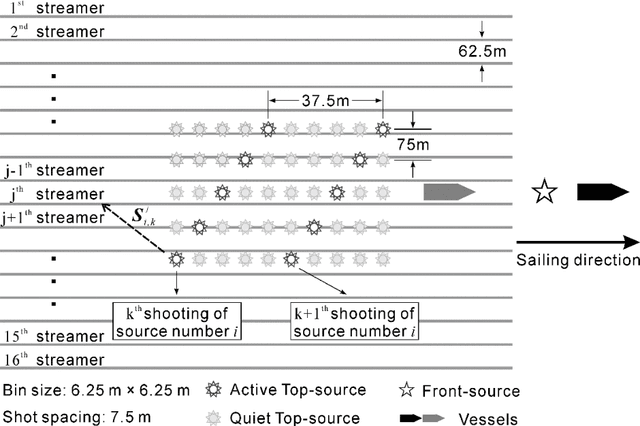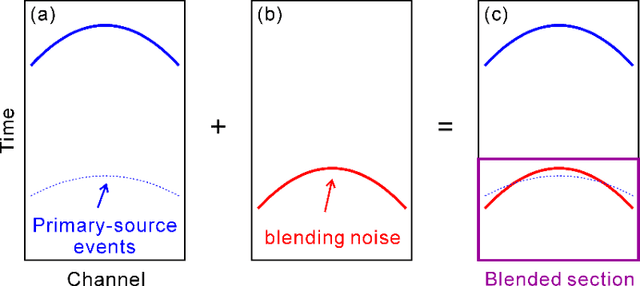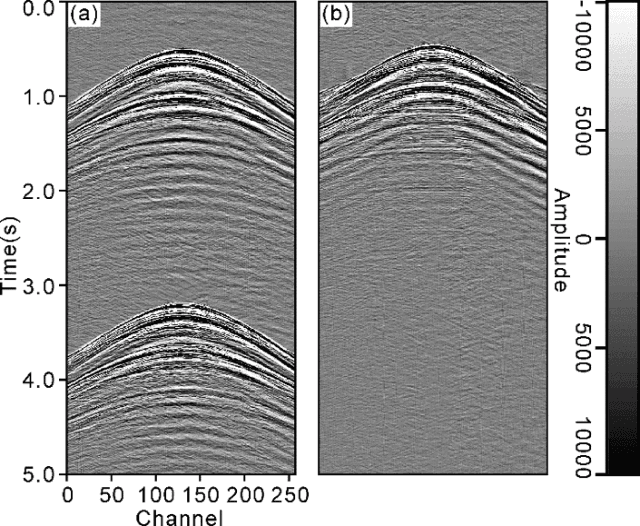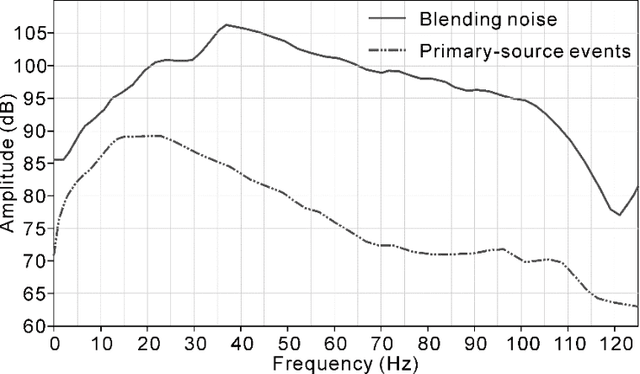Deep learning-based shot-domain seismic deblending
Paper and Code
Sep 13, 2024



To streamline fast-track processing of large data volumes, we have developed a deep learning approach to deblend seismic data in the shot domain based on a practical strategy for generating high-quality training data along with a list of data conditioning techniques to improve performance of the data-driven model. We make use of unblended shot gathers acquired at the end of each sail line, to which the access requires no additional time or labor costs beyond the blended acquisition. By manually blending these data we obtain training data with good control of the ground truth and fully adapted to the given survey. Furthermore, we train a deep neural network using multi-channel inputs that include adjacent blended shot gathers as additional channels. The prediction of the blending noise is added in as a related and auxiliary task with the main task of the network being the prediction of the primary-source events. Blending noise in the ground truth is scaled down during the training and validation process due to its excessively strong amplitudes. As part of the process, the to-be-deblended shot gathers are aligned by the blending noise. Implementation on field blended-by-acquisition data demonstrates that introducing the suggested data conditioning steps can considerably reduce the leakage of primary-source events in the deep part of the blended section. The complete proposed approach performs almost as well as a conventional algorithm in the shallow section and shows great advantage in efficiency. It performs slightly worse for larger traveltimes, but still removes the blending noise efficiently.
 Add to Chrome
Add to Chrome Add to Firefox
Add to Firefox Add to Edge
Add to Edge